
SEEKING AID
Jing said he never complained of his infection in hospital. "It was the first time for China to cope with such a public health crisis, and no one knew what measures should be taken to avoid infection.
The couple were extremely grateful to the hospital and government for their survival. But gratitude soon gave way to bitterness.
Shortly after his recovery, Jing lost his job at a construction firm where he was a project manager. The couple were both diagnosed with bone necrosis, and mounting medical expenses quickly dragged the once-wealthy family into financial plight.
In 2005, Beijing authorities began to provide free treatment for SARS sequelae.
In 2008, the government granted an annual subsidy of 4,000 yuan (646 U.S. dollars) for each patient, with 8,000 yuan for those without a job.
But the aid was inadequate for most survivors, whose injured joints and poor health deprived them of their ability to make a living, said Bian Xiaochun, a SARS survivor and senior engineer.
"We're working to raise more aid funds for these ailing survivors, particularly those without a job," said Bian.
According to a survey Bian and other SARS survivors conducted in 2006, 35 of the 110 SARS survivors they followed in Beijing were jobless, while 60 others were either retired or too sick to keep working. Their average annual income was only 9,000 yuan. Beijinger's average per capita wage for that year was 36,097 yuan.
The plight of the SARS survivors has aroused widespread attention from the public in recent years and some have lent a helping hand, said Li Xuemei, secretary-general with Beijing's welfare fund for the disabled people.
"Last year, for example, a Chinese pharmaceutical company reached a deal with us," she said. "They agree to donate cash on monthly basis to set up a special fund for SARS sequelae patients."
According to Beijing's federation for the disabled, more than 150 SARS survivors suffer serious sequelae, of whom 130 were disabled, said Guan Wei, a federation official in charge of petitions. "They are aged from 30 to nearly 70."
The figure did not include medical workers who contracted SARS on the job and whose treatment was covered by their employers.
"SARS is highly contagious, so we often saw an entire extended family fall ill. In those cases family members could not help each other and depended heavily on social aid," said Bian.
Bian is probably the luckiest survivor. He sought treatment when he first felt pains in October 2003. Seven years of traditional herbal therapy effectively eased his pains and spared him of surgery.
But not everyone is as lucky. Jing is crippled by bone necrosis on the thighs and legs and needs several surgeries to replace the injured bones.
Such replacement surgeries for SARS survivors were included in a government-sponsored free medication package beginning in 2005. The package also includes at least five free drugs for their bone and lung diseases.
But for most people, the pain is hard to rid.
Fang Bo, 61, had bone replacement surgeries on both thighs in 2005 and 2006, but the material used would last for 15 years at most. Besides, he was diagnosed of more necrosis on his shoulders, knees, elbows and wrists. With hypertension, depression and at least 10 other diseases, Fang doubted if he could stand the surgeries one by one.


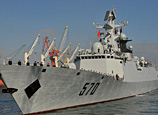
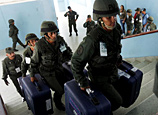
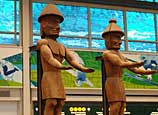
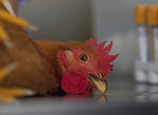



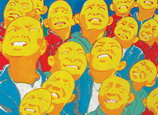

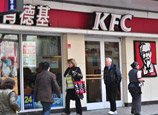






 WWII TV dramas border on the ridiculous
WWII TV dramas border on the ridiculous


![]()
